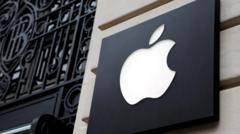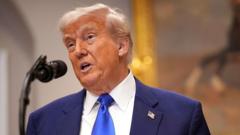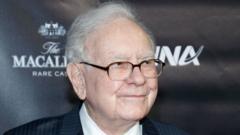In a significant legal development, a U.S. district judge has determined that Apple has knowingly violated a previous court injunction in its ongoing dispute with Epic Games, the creator of the popular game Fortnite. The judge, Yvonne Gonzalez Rogers, revealed that a senior Apple executive "outright lied" during testimony, prompting her to refer the case to the U.S. Attorney for the Northern District of California for a potential criminal contempt investigation.
The injunction in question was designed to prevent Apple from engaging in anticompetitive practices within its App Store, permitting developers to offer external payment options to customers. In a statement released shortly after the ruling, Apple expressed strong disagreement, asserting that it would comply with the order while seeking to appeal the decision.
This legal battle traces back to a 2021 lawsuit filed by Epic Games, which challenged Apple’s high commission rates—sometimes as steep as 30%—on purchases made through its platform and labeled its practices as monopolistic. Judge Gonzalez Rogers previously ruled that Apple could not prohibit developers from directing customers to use their own purchasing options, hoping to open up the market for developers.
However, in her recent contempt ruling, Judge Gonzalez Rogers accused Apple of deliberately undermining competition by engaging in practices that directly contravened her initial decision. She reviewed internal Apple documents that disclosed a conscious effort by the company to dodge compliance, asserting that CEO Tim Cook opted to ignore concerns raised by his executives advocating for adherence to the injunction.
The judge’s findings also implicated Apple’s vice president of finance, Alex Roman, who she said misled the court. One particularly troubling example cited by the judge involved Apple adjusting its commission on off-app purchases to 27%, despite having previously charged no fee, signifying a strategic retreat from promoting fair competition.
In the wake of the ruling, Epic Games CEO Tim Sweeney announced plans to reinstate Fortnite to the U.S. iOS App Store in the coming week, indicating a potential for reconciliation with Apple. Sweeney also proposed that if Apple expanded the court's current framework of no fees for web transactions globally, then his company would cease ongoing litigation and restore Fortnite to Apple's ecosystem. He claimed that Apple's hefty fees on web transactions are now rendered "unlawful," similar to changes enacted under Europe's Digital Markets Act.
As this situation develops, it shines a spotlight on the intricate dynamics between major technology firms and the necessity for regulatory oversight to ensure fair competition in digital marketplaces.




















